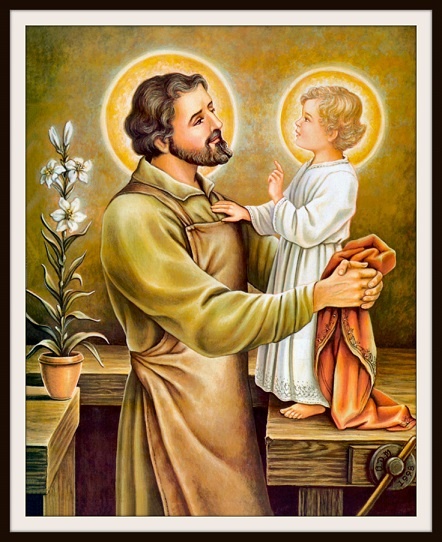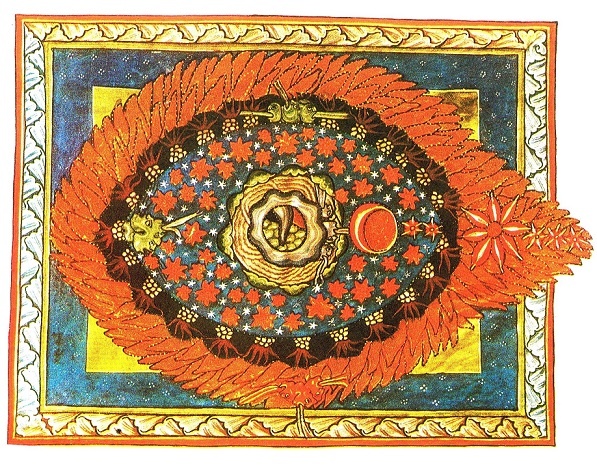
the fourth Sunday of Advent
22 December 2019
Today’s readings are:
Isaiah 7:10-16
Psalm 80:1-7, 16-18
Romans 1:1-7
Matthew 1:18-25
Click here to access these readings.
We don’t talk all that much about Joseph. And that’s a pity. One might suspect that there’s not all that much to say. I remember, as a kid, learning about Jesus’ parents, though we mostly talked about Mary. Then, once, when I was visiting a Roman Catholic Church with Helene (I think it was St. Mary’s in Eugene), I remember seeing a statue of Joseph. And I thought, “Oh, how nice. You get a statue, too.” Joseph is kinda “that other guy” when it comes to the holy family. Mary is the “ever blessed Virgin Mary”, a major saint of the Church, who the angel Gabriel visited, who bore Jesus Christ. And Jesus, well, Jesus is the Son of God, fully human and fully God. And Joseph is, well, he’s Joseph.
Now, I want to spend some time this morning talking about Joseph, but I’m pretty wary in doing so. And it’s not because Joseph is a difficult character (he’s not) or because there’s really not much to say about him and that, to make a whole sermon, I’ll have to pad this thing with tons of little stories that aren’t important. I’m wary of talking about Joseph, because I don’t want to make him into anything but simply Joseph.
When we talk about people, and especially when we write sermons about people, we tend to tout them up. And sometimes that’s a good thing. I’ve given and heard many sermons about Jesus, of course, but also people like Mary, Paul, Peter, Francis, and Benedict. I’ve even heard a sermon on the angels, which was pretty cool. And I think we’ve all probably read biographies of great people. And these sermons and biographies try to get deep into these people’s lives and hearts. They try to explain what it was about these people the drew others to them. They reflect on their wise sayings, their great acts, their humility and virtue, their hope and charity and faith. And, if they’re good sermons and biographies, there’s something in there about how we, too, can learn from these great people and lead virtuous lives as well.
And that’s just fine for people like Jesus or Mary or Peter, but when we do the same for folks like Joseph, I think we misunderstand what is important about common goodness. That’s not to say that Joseph wasn’t a good man. He’s important to Matthew as a link between Jesus and King David, and Matthew tells this really touching story in our gospel this morning about how Joseph struggled in how to best respond to Mary’s pregnancy. Joseph could easily have embarrassed Mary, ruined her name, and dragged her through court, but instead he respects her, tries to figure out the best way to save her honor, and respects her person even after they are married. But, really, what he does comes down to listening to the angel and caring about Mary as a human being – and that might be a miracle in itself, especially with how other characters in the Bible (like King David himself) treat women. Joseph doesn’t move mountains, lead great crowds of people. He’s just Joseph. That’s all.
And again, that’s fine. The thing is, it’s alright if common things stay common. It’s alright if simple things remain simple. There is a deep, deep goodness to these sorts of things. We human beings, and especially we Americans, so often try to over complicate things. We have so much time to sit around and wonder about the ins and outs of things that we miss the goodness, the simple, honest goodness that is staring at us straight in the face. Have you ever been out in the summer heat and enjoyed – and I mean, really, really enjoyed – a tall glass of nothing else but water? Or after a long trip simply just hugged and held your loved one? My one cousin, Sean, whether he hadn’t seen you in months or saw you for lunch just yesterday, he’d hug you as if you were the most important thing in the world. Those sorts of simple things make all the difference.
I’ve told some of you about this, but once in seminary, for Good Friday, a few of us thought we would try fasting during the day. Now, while I think fasting is a good spiritual exercise, this was not a good experience for me. I got irritable, frustrated, angry, resentful; man, I was ugly, and grew only more ugly as the day went on. But that first taste of food when the sun went down, that first bite – and it was bread, just normal bread – was pure heaven. It reminds me of an author I’m reading who often writes about food; someone once wrote about her, “She has eaten about 54,000 meals in her life, and you can tell from her writing that she savored every single one.” What gracious praise of a person.
What was Joseph to Jesus? What wisdom or knowledge could he impart to a young man who was born of the Holy Spirit? How do you raise God’s Son? What was Joseph to Jesus? Well, frankly, he was probably, and quite simply, a good man. And when I say “simply” I don’t mean that he was probably just a normal, average Joe, or that he just showed up and did what he could. No, I mean that he was simply, and oh so deeply, a good, good man. He didn’t make a big splash. He didn’t make a huge impact on the early Church like Mary did. His virtue, what Matthew calls “righteousness” was probably, quite simply, in being a simple, good man.
Now, sometimes we Christians are call to great acts. In times of trouble, we are called to be more than we ever thought we could imagine ourselves to be. Throughout the ages, Christians have been called, and been called often, to carry their cross into some difficult terrain, giving their life and their spirit, and sometimes even their very lives, for the sake of Jesus Christ. And in Christ, we are all called to share in the inheritance of God’s Son, to be God’s Daughters and Sons ourselves. It is a great thing we are all called to, for in the waters of Baptism we do not find an easy, ho hum kinda life, but a life lived with Jesus Christ at the center, Jesus Christ who lived and served and died for everyone.
But most of us aren’t called to be what you might call “center-stage Christians.” We won’t be Michael Curry touring around doing revivals; we won’t be Thomas Aquinas writing tome after tome of theology that will serve as the foundation of thought for centuries to come; and many of us won’t die for our faith, die so that others may more deeply and more freely believe. We will be good people like Joseph. We will change people’s lives and bring them the healing, fulfilling love of Jesus Christ, not by some great a mighty work or sacrifice, but by simple, good, and honest living. And that itself is the miracle.
Because miracles don’t just happen on the large scale; they happen on the small, too. Miracles don’t need to feed the 5,000 with a few fish and loaves of bread; miracles can also feed just one person. For a miracle is God entering into the world, in whatever way God enters, to heal when healing seems impossible, to lift up the lonely and the sorrowful when all they see is darkness, to love even the unlovable because everyone, everyone, deserves to be loved. As a parent, I am gifted with miracles every day, for my little girls love me with a full and open heart. And as a parent, I know that my love to my daughters will be miracles that follow them for the rest of their lives. And from some things I hear from students I teach or taught, I know that I have been the presence of God in their lives simply by teaching them good rhetoric, or that it’s okay to love good, honest, simple things like books.
And what about you? I don’t have the market cornered on miracles and the presence of God just because I’m the priest. Where are the miracles in your own life? Where have you been a miracle to others? They may be hidden, hidden in the hearts of those you meet, planted there by you living a life to Jesus Christ. They may be hidden in your own heart as well, but just because they are small and hidden doesn’t mean that they’re not miracles. For small things are at the heart of our faith, for God Almighty, the creator of heaven and earth, became a small, tiny child, was born of a young woman, on a dark night in a manger, and that tiny child was the one who would save us all and make the whole Creation new.




